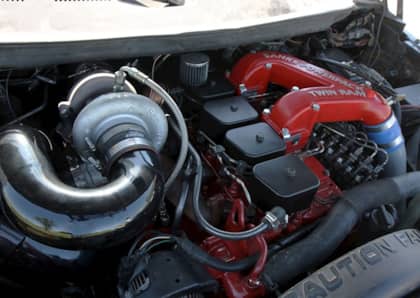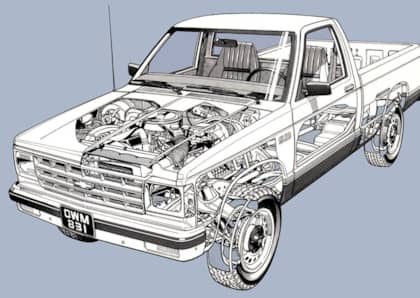The Long Road to Victory: Toyota Wins Le Mans
The dust has finally settled around the Circuit de la Sarthe and the 2018 Le Mans 24 Hours is now consigned to the history books. In truth, it will not be remembered by the aficionados as a classic. There were too many factors outside the action on track that made that verdict inevitable. However, as with all the previous editions, there was much to savour and enjoy, so let's start with a positive vibe. Accentuate the positive, as the song goes.

Toyota finally took victory in the Le Mans 24 Hours. Let me repeat that. Toyota finally took victory in the Le Mans 24 Hours. The Japanese manufacturer has attempted to win endurance motorsport's ultimate prize as far back as 1985. That year they entered two cars, with one led behind the wheel by Satoru Nakajima. In a neat twist of fate, Satoru's son, Kazuki, drove the winning car across the line last week. Given how the racing gods have mistreated Kazuki and his team in the past, most notoriously in 2016 with a failure while leading on to the final lap, victory has rarely tasted sweeter. A tip of the hat is also due to Akio Toyoda, President of the Toyota Motor Corporation, who is a one hundred percent old school car guy. His passion for cars and motorsports of all kinds went a long way toward making this famous victory possible.

From their first race in 1985, Toyota has frequently threatened to occupy the top step of the podium, but despite many fine efforts, they always seem to stumble at the last moment. This time it was their race to lose. In the run up to the event, social media was full of complaints and moans from the ill-informed about how unfair it was that Toyota had such a big advantage over its privateer rivals in the LM P1 class. The first thing to consider is that the current Equivalence of Technology (EoT) rules were intended to balance out factory programs from Audi (diesel), Porsche and Toyota (petrol). Given the close nature of the racing these regulations produced, it was a pretty good system. However, the withdrawal of the two VW Group brands left Toyota as the only real player in town. Realistically, private teams are not going to be able to compete on engineering, technical or financial terms with a giant corporation.

Toyota Alone in LM P1
Since Porsche's announcement that they were leaving the LM P1 contest, Toyota Gazoo Racing prepared for every eventuality and disaster that the race might throw at them. Pace was never going to be an issue but reliability and gross misfortune could be, and they knew that better than anyone else in the paddock. Meticulous preparation was the key to ending the victory drought. However, as everyone who has ever raced at Le Mans will tell you, nothing is certain until the checkered flag waves on Sunday afternoon.

This year, fans witnessed the first race since 2006 that did not have fully fledged factory outfits going hammer and tongs at each other for outright victory. Previously, Audi took on the challenge of Peugeot, and then Toyota and Porsche after the French left the stage. We've seen a golden age of top line endurance racing, and my guess is that it is not coming back anytime soon, no matter what proposed rules package is floated. Priorities have changed in the automobile industry and, more importantly, their customer base. It is also worth noting that Toyota's hybrids covered almost 3,300 miles in the race using 35 percent less fuel than when they returned to Le Mans in 2012. That is possibly the most impressive statistic of the lot.

Instead of flying under the radar and getting the job done quietly, Toyota went in the opposite direction. They hired in two-time F1 World Champion Fernando Alonso, rated by many to be on the same level as such titans of the sport as Juan Manuel Fangio, Jim Clark and Ayrton Senna. The Spaniard's race cars have not matched his talents in recent seasons, and he recognises that he is unlikely to challenge at the sharp end of F1 before the curtain comes down on his career. Therefore, he has expanded his horizons and sought out further challenges. Victories in the Indianapolis 500 and Le Mans 24 Hours, along with his 32 Grand Prix wins, would surely cement his place in the sport's hierarchy.

Alonso Dazzled
Alonso might have been a rookie, but he was mighty in traffic, mesmerising in speed and accuracy as he threaded his way through the GT battles. The crucial part of the race occurred during Alonso's two and a half hour stint in the early hours of Sunday, where he reeled in the other Toyota at a rate of two to three seconds per lap. It ultimately proved to be the difference between the two Toyotas.

Despite what some of the headlines post race might have suggested, Fernando Alonso did not win the race on his own.

A Full Team Effort
I have no doubt that Fernando would be embarrassed by any declarations that belittle the sterling contributions of fellow drivers Kazuki Nakajima and Sebastien Buemi, not to mention all those in Toyota Gazoo Racing at the track and back at the team's base in Köln, along with good number of folks in Japan. The competition at Le Mans is one of sport's ultimate team efforts, with everyone needing to pull in the same direction to stand any chance of success.

The icing on the cake for Toyota was the #7 car of Mike Conway, Kamui Kobayashi and José María López grabbing the runner up spot and a perfect score card for the Japanese. As a word to the race conspiracy theorists on social media who maintained that the result was fixed, it was not. The #8 car ran a marginally better race than the #7, and it's on such small details that victory is won or lost.

Toyota now have the taste of winning at La Sarthe and are due to return in 2019 to see if they can create a winning streak. It will take a brave person to bet against them. For Fernando Alonso, the target next year looks like another run at the Indianapolis 500. He showed his class in his debut at Indy in 2017. He looked at home on the difficult track and race and was clearly capable of winning. Alonso came back to earth this weekend with a bump after his Le Mans win. He endured a miserable time at the French Grand Prix driving his McLaren. Being at the back of the field does not suit him. Hopefully he will also come back to Le Mans next June. The prospect of another win will surely be all the motivation he needs.

Up next is a look at the GTE Pro class and the other events at Le Mans.








